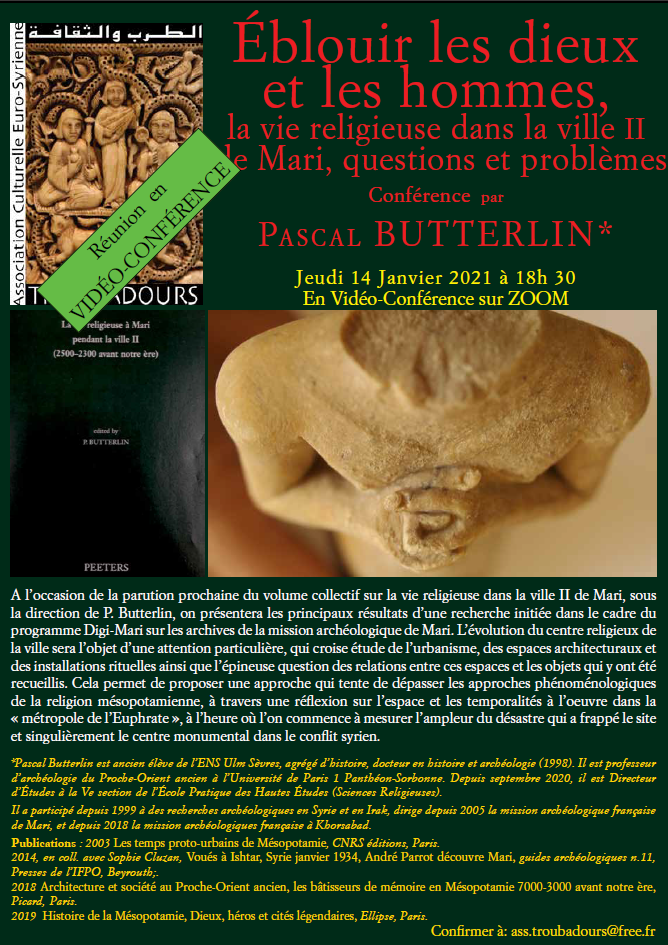Nous publions une lettre du Dr Nabil ANTAKI dans la Lettre d’ALEP sur la souffrance des Alépins de 2012 à 2016.
Lettre d’Alep No 42 (2 nov 2021) Visages tristes
Extraits :
« Les Alepins n’oublieront jamais les années 2012 à 2016 quand la guerre sévissait à Alep.
Ils se souviennent très bien des bombes et des bonbonnes de gaz remplies d’explosifs et de clous lancées, par les groupes armés rebelles installés à Alep Est, sur leurs quartiers faisant, quotidiennement, de nombreuses victimes civiles.
Ils se souviennent des heures passées dans l’anxiété et la peur attendant le retour à la maison de leurs proches.
Ils se souviennent des souffrances endurées, du froid en hiver faute de fioul pour se chauffer et des soirées passées, pendant des années, dans l’obscurité faute d’électricité (les centrales électriques étant entre les mains des terroristes).
Ils ne peuvent pas oublier les années où ils étaient privés d’eau courante (les terroristes ayant arrêté l’alimentation en eau de toute une ville) et les heures à attendre leur tour, devant les puits creusés à la hâte n’importe où en ville, pour remplir leurs bidons d’eau.
Ils se souviendront toujours des blocus à répétition de la ville quand personne ne pouvait entrer ou sortir, isolant Alep et ses habitants et causant des pénuries de tout ce qui est essentiel.
(…)
Malgré toutes ces souffrances des dernières années, les Alepins répètent maintenant en chœur « nous vivions mieux pendant les années de guerre que maintenant », « nous regrettons le temps des bombes qui était plus supportable que la pauvreté que nous subissons maintenant ». En effet, c’est la bombe de la pauvreté qui a explosé maintenant en Syrie laissant 80% de la population vivre en dessous du seuil de pauvreté et 60% vivre en insécurité alimentaire.
Maintenant que les combats ont presque cessé depuis environ deux années et que la situation militaire est gelée, c’est la situation économique qui est catastrophique.
Les prix des produits essentiels ont augmenté d’une façon vertigineuse entraînant une augmentation du coût des loyers et du coût de la vie. La pénurie s’est installée durablement avec un rationnement de l’essence, du pain, du sucre, du riz…Les salaires, par contre, n’ont pas été réajustés proportionnellement causant une pauvreté accrue. La majorité des familles n’arrivent plus à boucler leur fin de mois et comptent sur les aides alimentaires, médicales et monétaires des ONG pour survivre.
Cette situation est le résultat de plusieurs causes dont la destruction de l’infrastructure du pays et les ravages de la guerre, la crise financière du Liban où beaucoup de syriens ont perdu leur capital pour investir et leurs économies pour leur retraite mais aussi des sanctions iniques imposées par les pays Européens et les États-Unis qui bloquent les transactions financières, empêchent l’importation et interdisent les investissements en Syrie.
(…)
Nous sommes persuadés que la situation ne s’améliorera pas tant que les sanctions ne sont pas levées ; c’est pourquoi nous réclamons leur fin et nous vous demandons, chers amis, de faire pression sur vos élus et les autorités de vos pays pour qu’ils mettent fin aux sanctions.
Nous sommes conscients que tout ce que nous faisons n’est qu’une goutte d’eau dans l’océan des besoins ; mais cette goutte est indispensable au bien-être de milliers de familles.
Nous essayons de rendre les Visages de nos compatriotes un peu moins Tristes et ce n’est pas facile.
Nous comptons sur votre solidarité et vos prières ».
Dr Nabil Antaki
Pour les Maristes Bleus.
Alep le 2 novembre 2021
On trouvera la liste des actions menées par les Maristes Bleus d’Alep dans le texte complet de la Lettre.
Ils ont besoin aussi de nos dons pour continuer. Sans frais ni retenue des associations françaises nous permettent de faire parvenir aux Maristes Bleus d’Alep (entre autres) des dons déductibles de nos impôts, avec un coup double : aider les Syriens et sanctionner nos gouvernants qui les affament. M-A P
